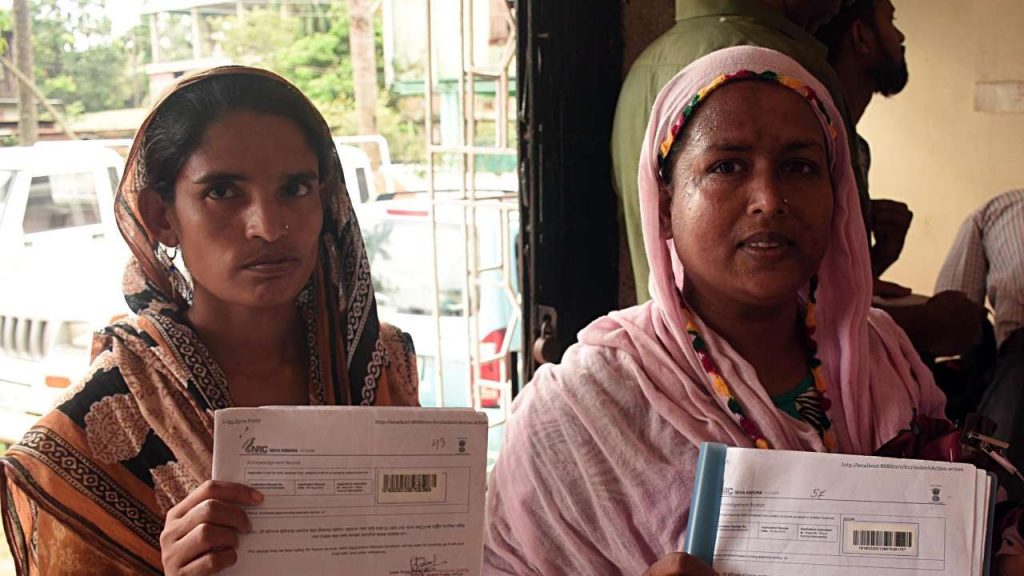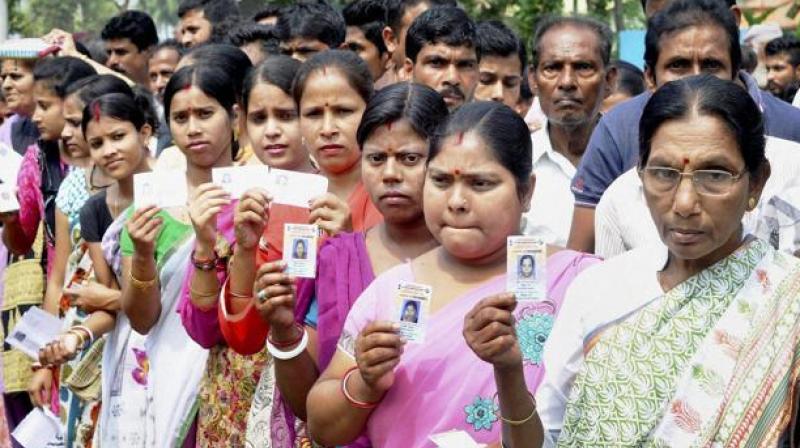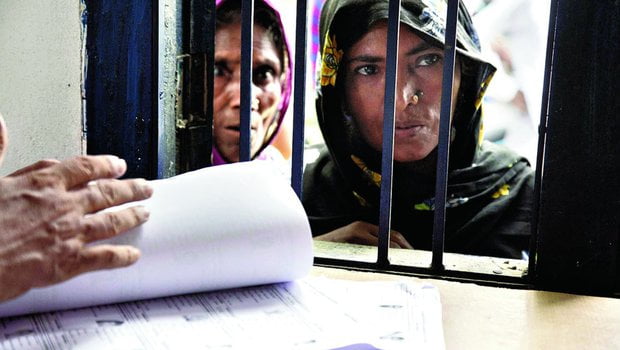Hasina Begum sat on the bed to have a light chit chat and said, “It always feels nice to work. I like staying everywhere, be it my own house at Katabari (Guwahati) or be it my employer’s place.” Hasina Begum, who works as a domestic worker in the PG where I stay belongs to one of the Muslim communities of Assam, who are much at the centre of debate due to the current state of affairs. She was born in Katabari, a locality in Guwahati and has been working as a domestic worker for the past 15-20 years. She is usually hired by my landlady on times when she needs extra hands to help her out with the domestic chores, for instance during some weddings at her house.
Interestingly, during Eid she does not work in any household but goes around collecting gifts and alms from various households. It is a ritual where people make donations and distributions during the entire festive month of Ramzan. In that process, she manages to collect 12,000 to 13,000 rupees which she expends on her family without keeping a penny for herself.
Hasina Begum’s husband estranged her when she was pregnant with her one and only son. From that time, she has worked relentlessly to feed her family. Her son got married and has two children. Surprisingly, Hasina Begum’s daughter-in-law comes every month to collect Hasina Begum’s salary from the employer’s house, all the way from Katabari. And Hasina Begum, without giving a second thought, gives away her entire salary i.e. 3000 rupees to her daughter-in-law.
Being a woman, Hasina Begum also feels that managing the domestic chores at her employer’s place is indispensable to her duties. Since she gets paid for it, so she feels she is obliged to accomplish her tasks. Interestingly, there was also a male domestic helper who was hired by my landlady during her son’s wedding. Despite the fact that he is getting paid, he used to avoid most of his day-to-day responsibilities quite unlike Hasina Begum. At the outset, we can assume it to be Hasina Begum’s commitment to her work but if we try to analyse further it can be estimated that such untoward docility and submissiveness towards performing the household works come from the fact that she is a woman and therefore she is ‘bound’ to perform these tasks.
To her dismay, another additional trouble that has added to her miseries is her name being misspelt in the NRC (National Register of Citizens) list. Her name is entered as Hasnara whereas her real name is Hasina. And this is not the isolated case that has been encountered. There are countless women from the low-income bracket of society who have either failed to get their name included in the NRC list or their names were wrongly spelt.

However, she was at an advantageous spot since she could manage to establish that she is linguistically Assamese which has not been the case with many Bengali speaking Muslim women of Assam. She reiterated that since she is a woman with limited means, fate has stricken her hard from every side. She even added that her name is misspelt even in the PAN card and when she asked a broker about the same, he tried to fool her by saying that in order to make necessary changes with her name in the PAN card, she will have to go to the court.
Also read: The Many Inventive Ways To Resist CAA, NRC And NPR
Due to the fear of undertaking a time and money consuming task of going to the court, she just dropped out the plan. The manner in which the NRC proceedings are carried out in Assam is quite arbitrary and the surveillance that one has to face on linguistic or religious grounds has added too much tension in the lives of people who belong to the marginalised section of the society. While she was called for the NRC hearing, she was asked a question about her family where she said that she has been estranged by her husband who is married to someone else at present.
But Hasina Begum mentioned that the officer in charge of verification of her documents did not question her too many times finding her to be an old and emaciated woman producing every possible document that could prove her to be an ‘Assamese’. What is interesting is that Hasina Begum is also quite defensive about her identity of being an Assamese and not a Bengali speaking Muslim. She said, “I was never asked whether I am Assamese or a Bengali, I mean why would they! I have all the documents. My parents used to stay at Athgaon (Guwahati) and everyone knows about it.“

Due to the current political situation, the need to be defensive about one’s own identity has become an important question, especially for people who are most vulnerable to facing coercion from the state. And women are the worst sufferers in many cases because it is women mostly who do not have access to proper education but are mostly tied to domestic work, even if they are paid. As a result, they lose out on documents that can establish them as citizens of the country. Due to limited exposure of understanding official paperwork, ignorance came up as a curse to the lives of many women in Assam.
Also read: In The Time Of CAA-NRC, How Is International ‘Mother’ Language Day Important?
Although Hasina Begum’s story does not necessarily narrate about the harassment Muslim women in Assam have faced due to the NRC proceedings, but there are certainly stories of women who have faced aggressive pressures from the state machinery in every possible way to prove their citizenship at the cost of their livelihood.
Anuprova is a researcher working on a Migration Study project in collaboration with the University of Edinburgh, Scotland and North East Network, Guwahati. She has been working on academic research projects since the last two years. Before this, she has worked in North Eastern Social Research Centre, Guwahati where she worked on Customary Laws of the tribes in North East India. She is an ardent enthusiast in learning and writing on gender, society, culture and politics and have written and published some manuscripts and papers during her tenure in the field of research. She has also participated in activist research works being a part of North East Network. You can find Anuprova on Facebook and Twitter.
Featured Image Source: Telegraph India
About the author(s)
An enthusiastic writer, researcher and a learner....



